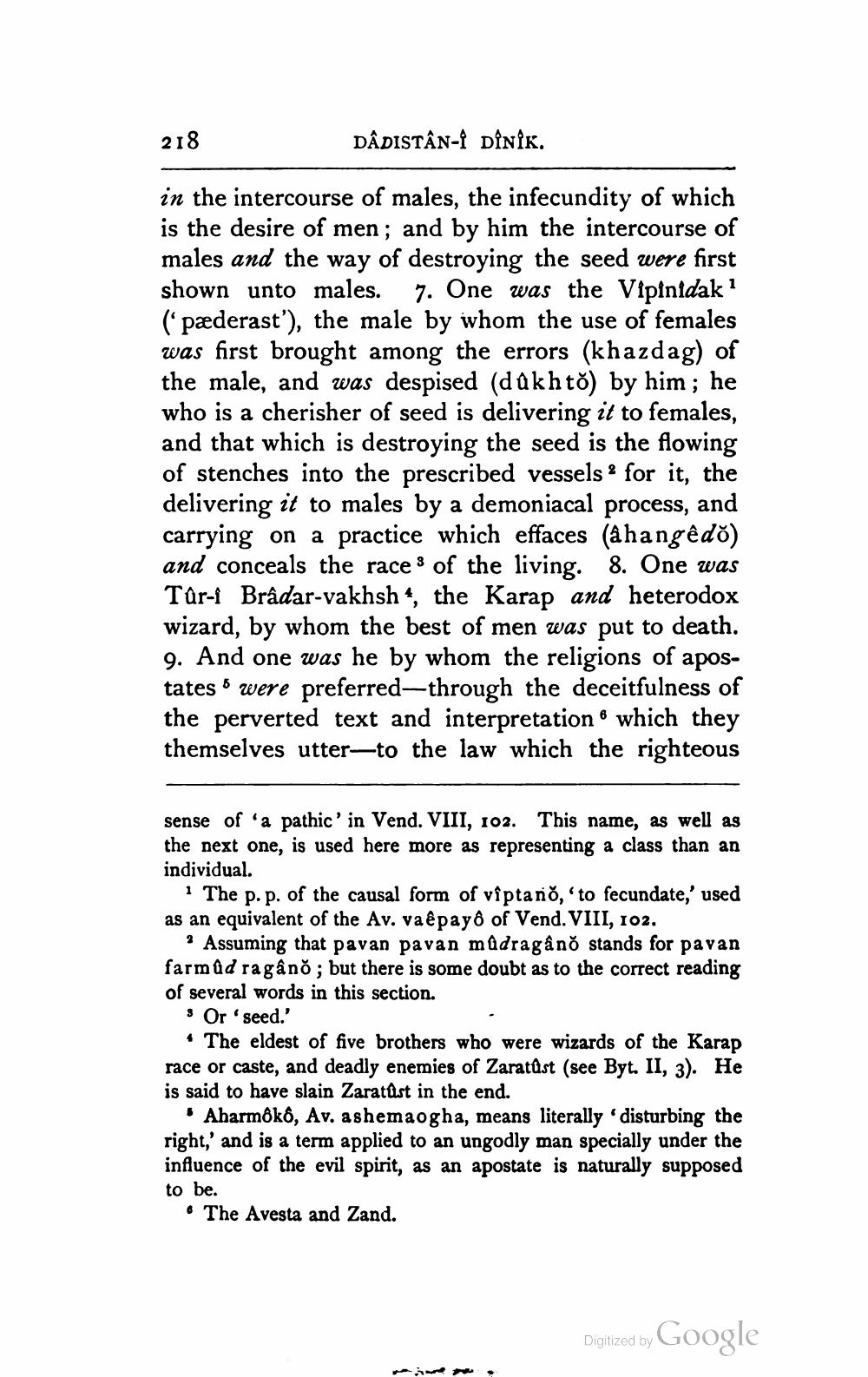________________
218
DÂDISTÂN-Î DÎNÍK.
in the intercourse of males, the infecundity of which is the desire of men; and by him the intercourse of males and the way of destroying the seed were first shown unto males. 7. One was the Vipinidak (pæderast'), the male by whom the use of females was first brought among the errors (khazdag) of the male, and was despised (důkh to) by him ; he who is a cherisher of seed is delivering it to females, and that which is destroying the seed is the flowing of stenches into the prescribed vessels 2 for it, the delivering it to males by a demoniacal process, and carrying on a practice which effaces (ahangêdo) and conceals the races of the living. 8. One was Tûr-i Brâdar-vakhsh 4, the Karap and heterodox wizard, by whom the best of men was put to death. 9. And one was he by whom the religions of apostates were preferred-through the deceitfulness of the perverted text and interpretation which they themselves utter—to the law which the righteous
sense of 'a pathic'in Vend. VIII, 102. This name, as well as the next one, is used here more as representing a class than an individual.
1 The p.p. of the causal form of viptano, 'to fecundate,' used as an equivalent of the Av. vaepayô of Vend. VIII, 102.
? Assuming that pavan pavan madragânð stands for pavan farmud ra gâno; but there is some doubt as to the correct reading of several words in this section.
s Or 'seed.'
• The eldest of five brothers who were wizards of the Karap race or caste, and deadly enemies of Zaratûst (see Byt. II, 3). He is said to have slain Zaratast in the end.
Aharmoko, Av. ashemaogha, means literally 'disturbing the right,' and is a term applied to an ungodly man specially under the influence of the evil spirit, as an apostate is naturally supposed to be.
. The Avesta and Zand.
Digitized by Google




